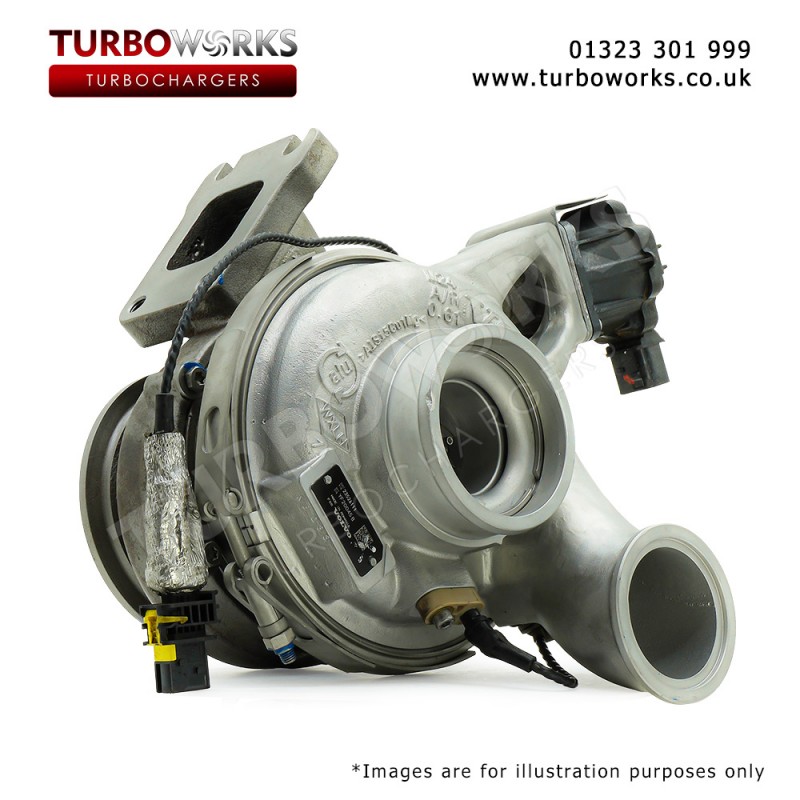Are Buses Turbocharged? Unpacking The Power Behind Public Transport
Buses are an indispensable part of our daily lives, shuttling millions of people to work, school, and various destinations. While we often take their powerful presence for granted, have you ever stopped to wonder what kind of engineering marvels lie beneath their massive frames? Specifically, are these behemoths turbocharged?
The short answer is: Yes, most modern buses are turbocharged. This isn't just a trend; it's a fundamental design choice driven by the demanding requirements of public transportation. Turbochargers play a crucial role in enabling buses to handle heavy passenger loads, navigate diverse terrains, meet stringent emission standards, and operate efficiently day in and day out. Let's delve deeper into why buses rely on this technology and what it means for their performance and the environment.
The Core Question: Do Buses Have Turbos?
The consensus from industry experts and mechanics alike is clear: "Yes, most of the bus engines made in the past few decades are turbocharged." This applies broadly to various types of buses, including transit buses, city buses, and even the vast majority of school buses in America.
Why is this the case? Buses are not just ordinary vehicles. They are designed to carry significant weight – sometimes dozens of passengers – and operate for long hours, often in stop-and-go city traffic or over long distances. To perform these tasks reliably and efficiently, their engines need a substantial boost in power and torque, which turbochargers are perfectly suited to provide. Without a turbo, a bus engine would struggle to deliver the necessary performance while remaining within reasonable size and fuel consumption parameters.
Why Turbocharge a Bus Engine? The Benefits Explained
The decision to equip buses with turbochargers isn't arbitrary. It's a strategic engineering choice that offers a multitude of benefits essential for their operation. These advantages range from raw power to environmental responsibility.
Enhanced Engine Performance & Power
A turbocharger, often simply called a "turbo," is a device that forces more air into the engine's combustion chamber. By compressing the air before it enters the engine, the turbo allows the engine to burn more fuel and generate significantly more power than it would naturally. This is vital for buses because:
- Withstanding Passenger Weight: Buses need to accelerate and maintain speed even when fully loaded with passengers. The added power from a turbo helps the engine "withstand passenger weight" with greater ease, ensuring smooth operation.
- Improved Engine Performance: Turbos "improve engine performance" across the board, providing the necessary grunt for climbing hills, merging into traffic, and maintaining consistent speeds on highways. Many buses run on "massive 16-liter diesel engines" or "6 cylinder in-line diesel engines," and the turbo helps these large powerplants operate at their peak.
Improved Fuel Efficiency & Mileage
It might seem counterintuitive that adding a device that increases power can also improve fuel efficiency, but that's one of the turbocharger's key advantages, especially for diesel engines. By forcing more air into the engine, the turbo ensures a more complete combustion of fuel. This leads to:
- Better Fuel Economy: Turbochargers "improve efficiency of diesel engines," allowing them to extract more energy from each drop of fuel. This translates to "better mileage" for bus operators, which is crucial for reducing operational costs.
- Optimized Power Delivery: An engine with a turbo can often achieve the same power output as a larger, naturally aspirated engine but with less fuel consumption, making it a more efficient choice for heavy-duty applications.
Reduced Emissions
In an era of increasing environmental awareness and stricter regulations, reducing emissions is a top priority for vehicle manufacturers, especially for public transport fleets. Turbochargers contribute significantly to this goal:
- Cleaner Combustion: By optimizing the air-fuel mixture and promoting more complete combustion, turbos help "reduce emissions" of harmful pollutants. This makes buses more environmentally friendly, a critical factor for city operations.
Smooth Power Flow & Low-End Torque
While some might assume turbos are primarily for boosting "low-end torque," especially in smaller engines, the situation is slightly different for large diesel bus engines. As one piece of data suggests, "They don't need help with low end torque, the giant diesel does that just fine without forced induction." Instead, the turbo's role in buses is to provide an overall "smooth power flow" and general "improvement" in engine output across the RPM range, making the driving experience more consistent and powerful at higher speeds and loads.
Turbo vs. Supercharger: Why Turbos Dominate in Buses
It's a common question, as one person noted their son asking, "why the city buses have turbos and not superchargers." While both turbochargers and superchargers are forms of forced induction designed to increase engine power by compressing air, they operate differently, and turbos are overwhelmingly preferred for diesel buses.
- Turbochargers: These devices are powered by the engine's exhaust gases. As exhaust gases exit the engine, they spin a turbine, which in turn spins a compressor, forcing air into the engine. This makes them highly efficient as they utilize otherwise wasted energy.
- Superchargers: In contrast, superchargers are mechanically driven directly by the engine's crankshaft, typically via a belt. While they offer instant power delivery without "turbo lag," they consume some of the engine's power to operate, making them less fuel-efficient than turbos.
For large diesel engines in buses, efficiency is paramount. As one user mentioned, they "can't recall ever reading about a supercharged diesel," highlighting their rarity in this application. The inherent efficiency of turbochargers, leveraging exhaust energy, makes them the superior choice for the continuous, heavy-duty operation of buses.
Common Bus Engines and Their Turbochargers
The bus industry relies on robust and reliable engines, and many of the leading manufacturers integrate turbocharging into their designs. "Buses depending on the engine can be supercharged or turbo charged, depends on the company making the engine." However, the trend clearly favors turbos.
- Caterpillar and Cummins: Engine manufacturers like "Catapillar, Cummings are usually turbo." Cummins, in particular, is a prevalent engine supplier for buses. For example, "all the newer busses use Cummins ISL 280," which are known to be turbocharged.
- Detroit Diesels: While less common for new buses, older models with "Detriot diesels 6-71" could potentially be supercharged or turbocharged, showcasing some historical variation.
- School Buses: "95 percent of all school buses in America" are either turbocharged or naturally aspirated. Many school bus engines, similar to trucks, might run a "Holset HX35" turbo, a common and robust unit.
Beyond Diesel: The Future of Bus Propulsion
While turbocharging has been a game-changer for diesel buses, the transportation landscape is evolving rapidly. It's important to acknowledge other engine types and the emerging technologies that are shaping the future of public transport.
Naturally Aspirated Engines
Some older or smaller school bus engines might still be "naturally aspirated." These engines draw air into their cylinders using only atmospheric pressure, without any forced induction. While simpler, they generally offer less power and efficiency compared to their turbocharged counterparts, especially for heavy vehicles.
Gas Turbine Engines
Interestingly, "Gas turbine engines on buses use turbines as a power source and fuel gas as an energy source." However, these are "rarely used on buses due to their high cost and inefficiency for" this application. They are more commonly found in aircraft or power generation.
The Rise of Electric Buses
Perhaps the most significant shift in bus technology is the rapid adoption of electric buses. "Electric buses are better for the climate than diesel buses everywhere in the country." Studies show that "Battery electric buses range from 1.4 to 7.7 times better than a diesel bus" in terms of environmental impact. With "New federal policy in the US (2021) provides funding assistance for school districts to purchase electric buses and to install necessary charging infrastructure," the transition away from fossil fuels is accelerating. Naturally, electric buses do not require turbochargers as they operate on electric motors, not internal combustion engines.
Maintenance and Longevity of Bus Turbos
Like any complex mechanical component, turbochargers require proper maintenance to ensure longevity. Given the extreme conditions they operate under – spinning at incredibly high speeds and handling "exhaust gas temperatures of around 800°C" – they are built to be robust. However, "excess exhaust gas temperature beyond this point can cause the turbine shaft to melt." For common turbos like the Holset HX35, "rebuilding the stock turbo is a cheap option" with available "kit[s]," highlighting that these components are designed for repair and extended service life.
In Summary
To conclude, the answer to "Are buses turbocharged?" is a resounding yes for the vast majority of modern buses. Turbochargers are integral to the design of these heavy-duty vehicles, providing the necessary power to handle immense passenger loads, improving fuel efficiency, and helping to reduce harmful emissions. While the automotive world is always evolving, with electric buses rapidly gaining traction, the turbocharged diesel engine has been, and largely remains, the unsung hero powering our public transportation systems, ensuring a smooth, powerful, and increasingly efficient ride for millions.
- Maddie Mcdonald
- Beyonce Terry Richardson
- Eyelash Extensions Bronx
- Covers Global
- Dharma Cornerstone Agency

Turbo VW Bus - YouTube

Brand New & Remanufactured Turbochargers for Sale I Turboworks Ltd I

Bus - Www.turbochaos.com